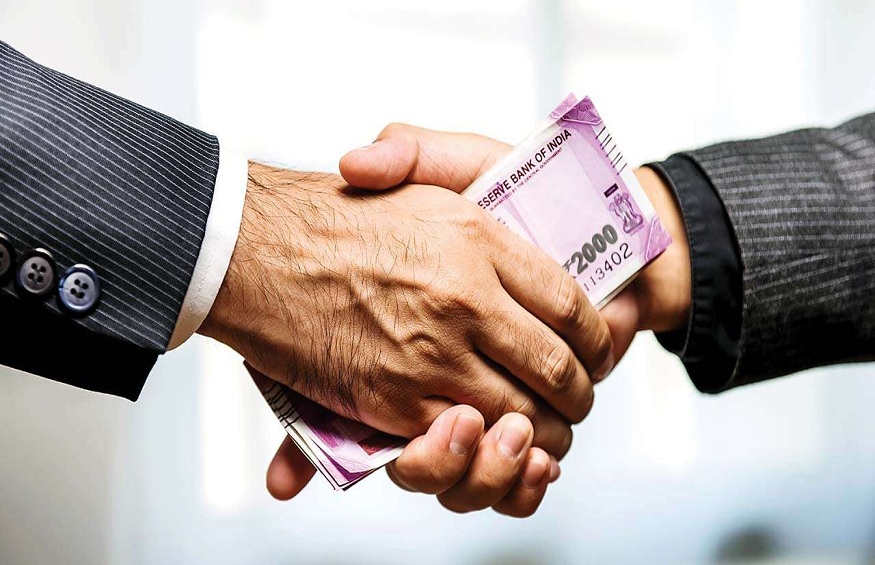Unforeseen circumstances can be such that you can no longer settle and cope with your monthly loan payments: loss of a job, death, illness, etc. According to the BNB, in June 2017, 545,399 people (representing a decrease of 0.8% compared to June 2016) posted a non-payment on their loans. This non-payment, also called bad credit, can lead to a major default and serious consequences. And you are entitled to ask yourself “What happens if I can no longer repay my loan? »Find out below what can happen in the event of non-payment of your consumer credit.
1. You will be registered on the blacklist of the Central Individual Credit Register (CCP) of the BNB
If you do not pay your credit, you are likely to find yourself on the CCP’s blacklist . The latter, a tool in the fight against over-indebtedness, identifies bad payers. When you do not pay / no longer your credit, the lender must inform the Central of the non-payment within eight working days of its dispute, according to the criteria set by law. The default must be more than three months.
When you are registered on this list, you will stay there for a maximum of ten years if you do not regularize your situation. However, if you repay all of your debt , this period is reduced to one year after the date of regularization.
2. Your lender will have different options available to him.
To. He will be able to call on your guarantees The lender, in the event of non-payment of the credit, can seize your various guarantees according to the terms defined by law:
Your surety : after sending a formal notice by registered letter, if you have still not regularized the payment of your credit, the lender can call on your surety and summon him to pay. For this, you must not have paid at least two installments or at least 20% of the total amount to be repaid or the last installment.
Your salary : the lender can seize your salary. For this, you must have agreed to an assignment by contract separate from that of the main loan contract. The lender must first notify you by registered letter of his intention to implement the seizure. Then follows a procedure at the end of which the lender can seize part of your salary. Generally, he informs your employer, who is responsible for paying him the amount. However, you can dispute this before the justice of the peace and / or ask for payment delays.
Your mortgage : If you do not pay off your mortgage, the real estate on which your loan was made can also be seized.
If you face a non-payment of your credit , the lender, after reminders, can terminate your contract and request repayment of the latter. For this, your mortgage default or any other credit must be equal to two installments or 20% of the total amount to be repaid. The lender must first send you a warning by registered letter within 3 months of the non-payment. This will give you one month to pay off your debt. If you do not do so, he may terminate the credit agreement and demand the full repayment of the following amounts:
a penalty calculated according to the contract and which may not exceed 10% of the capital remaining due on the first tranche of 7,500 euros and 5% on the portion of the outstanding capital which would be greater than 7,500 euros.
payment
vs. It may include the subject of the loan in consumer credit contracts
In some types of consumer credit contracts, if you do not pay your monthly credit payments and are in default of payment, the lender can seize the asset from the unpaid credit agreement. Indeed, some contracts may contain a retention of title clause. The latter allows the lender to recover at any time the property whose purchase was financed by a loan. For example, if you took out a consumer loan to buy a car, and that you do not pay your monthly payments, the latter can be taken back. However, if you have already repaid at least 40% of the value of the car, the lender must first notify you by giving you notice by sending a registered letter. It must have your consent or an authorization from the justice of the peace. It is therefore essential to think carefully before paying off a loan, and to assess your ability to repay it beforehand. You agree to repay several installments that will weigh on your monthly budget, so be sure of the importance of the project to be financed.
3. You can be sued
As part of the options available to the lender, after formal notice and / or attempts at conciliation, the latter can take you to court for the repayment of the unpaid credit. You can therefore be ordered to pay the balance of the loan and late payment interest. This judgment must be notified to you by a bailiff. If you still don’t pay off your debts, he may have a garnishment on your paycheck or your property.
4. You will be less likely to get a new loan
As said before, when you face bad credit, you may find yourself on the CCP blacklist. Even though each lender sets their own policy for accepting a loan, they are required to consult the blacklist before granting the loan. If you are on the list then the lender cannot grant you credit under any circumstances;
If you cannot repay your loan, speak up and try to find amicable solutions with your lender as a priority . You can also seek help from Ombudsfin or other organizations to give you the best advice.

